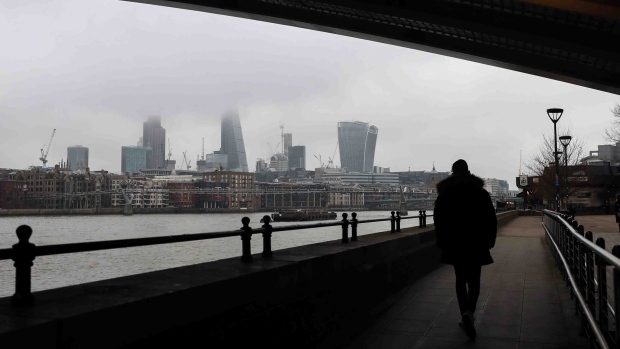Aug 22, 2023
UK Challenger OakNorth Joins Climate Battleground With Big Banks
, Bloomberg News

(Bloomberg) -- OakNorth, a British challenger bank, has revealed more about its carbon footprint to meet climate transparency rules early.
The bank, which lends to small and medium-sized businesses, said it’s targeting a 60% reduction in emissions in its supply chain and loan book, together known as Scope 3 emissions, by 2030. The firm wants to get to net zero emissions by 2035. That goes further than other institutions, according to OakNorth founder and chief executive officer Rishi Khosla.
The UK currently only requires certain large companies to reveal emissions data under the international Task Force on Climate-Related Financial Disclosures guidelines, with smaller firms brought into the rules in waves by 2025.
“Pursuing climate ambitions and bolstering credentials like this will be much easier for fintechs and startups than for the incumbent banks,” said Ronan Dunphy, a banks analyst at Goodbody. “They are not burdened by either legacy loan books with an information deficit in many instances, and customer relationships or the legacy infrastructure/physical footprints in the context of Scope 1 emissions.”
Several smaller lenders are turning growing obligations around climate reporting into an area of commercial competition. Tandem Bank last year rebranded as “the UK’s greener bank” after buying Allium Lending to expand in areas such as energy-efficient home improvement loans. Starling Bank, OakNorth and Monzo signed a “Tech Zero” campaign to make clear commitments on carbon reduction.
Khosla said OakNorth has looked into polluting industries such as construction in its £5 billion loan book, but also less obvious areas such as emissions produced by hospitals, or the environmental impact of building an EV car.
The TCFD was created in 2015 as a way to improve companies’ climate policies, encourage moves to reduce polluting and help financial markets compare businesses. Michael R. Bloomberg, founder and owner of Bloomberg News parent Bloomberg LP, serves as chair of the TCFD.
©2023 Bloomberg L.P.





